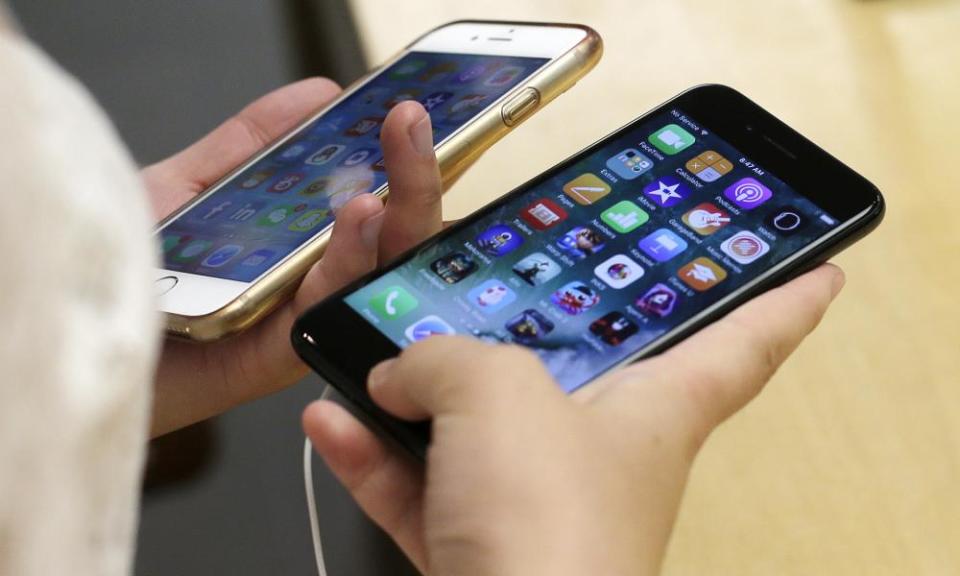Apple’s addiction to iPhone shows no sign of waning

A vision of the near future: you’re in your driverless Apple vehicle, heading for the new-look Apple Store whose Genius Groves provide space for business meetings, while watching Apple’s exclusive Carpool Karaoke video series on your Apple TV.
The present is a bit more prosaic. On Tuesday, Apple’s current dependency on the iPhone is likely to be reinforced when it reports second-quarter results, hence its desire to expand its services businesses. The company is expected to report only a slight year-on-year rise in revenues to about $52bn after a couple of weak quarters, not to mention the first annual decline in iPhone sales last year. And analysts believe Apple’s guidance for the third quarter could be cautious, with JP Morgan forecasting sales of $44.2bn for the three months to June.
The problem is that consumers could be keeping their cash in their pockets until the next iPhone arrives (it’s expected in September). Although some reports suggest the new model could be on display at the Worldwide Developers Conference in June, there have also been suggestions the September launch may be delayed because of supposed problems with a new edge-to-edge screen.
But despite chief executive Tim Cook being unhappy at some of Donald Trump’s actions, notably the recent travel ban, Apple is set to benefit from the president’s tax policies. Trump plans to give incentives to companies who repatriate their large overseas cash holdings, although no details were given at last week’s tax announcement.
A £2.6bn loss? Here, have a £343,000 bonus
Pearson has come a long way since it began selling off its crown jewels, including Madame Tussauds, investment bank Lazard and more recently the Financial Times and the Economist, with its stake in book publisher Penguin Random House the next on the block.
Unfortunately it has been in the wrong direction, with the company’s concentration on educational publishing proving problematic, particularly in the key US market. It reported the biggest loss in its history last year – some £2.6bn. Still, that didn’t stop Pearson awarding chief executive John Fallon – who has presided over five profit warnings since taking over from Marjorie Scardino in 2013 – a 20% increase in his total pay to £1.5m. To the surprise of many, this included a bonus of £343,000.
When the award was announced last month, Sarah Wilson, chief executive of investor advisory service Manifest, said: “Many shareholders are automatically voting against any increased awards and so this will just ratchet up tension.”
Something for Pearson investors to consider as they make their way to the company’s annual meeting on Friday.
Rolls promises to create more bread
Another company which recently recorded the biggest loss in its corporate history, and which is also holding an annual meeting this week, is Rolls-Royce.
The aero-engine maker agreed a £671m settlement in January relating to bribery and corruption charges and this, along with a £4.4bn writedown due to the plunge in sterling, helped push it into a £4.6bn loss for the year. Chief executive Warren East said the write-off was “just an accounting measure” and did not reflect the underlying health of the business.
The company has a target of increasing free cash flow from the current £100m to £1bn by 2020, which some analysts are unconvinced will happen. Deutsche Bank said: “Although we believe much better cash generation lies ahead … achieving the magic £1bn targeted by management looks to be a stretch too far. The key challenge for management is materially improving the cash generation within large civil engines.”
Investors will have the chance to quiz executives on this and other topics at Thursday’s meeting, which takes place at Pride Park, home of Derby County football club. They must hope that, unlike Derby this time around, Rolls will soon be considered a Premier League performer again.

 Yahoo Finance
Yahoo Finance 